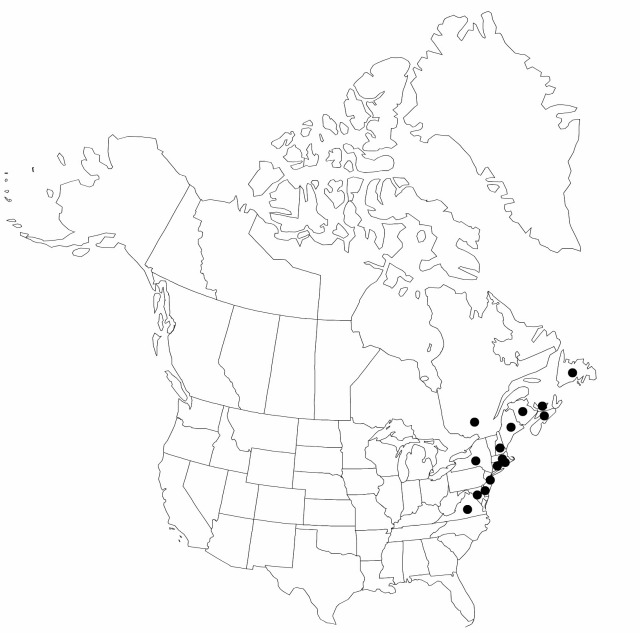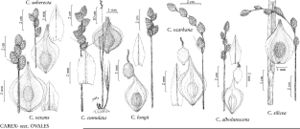Difference between revisions of "Carex silicea"
Proc. Amer. Acad. Arts 7: 393. 1868.
FNA>Volume Importer |
imported>Volume Importer |
||
| Line 8: | Line 8: | ||
}} | }} | ||
|common_names=Carex silicicole | |common_names=Carex silicicole | ||
| + | |special_status={{Treatment/ID/Special_status | ||
| + | |code=F | ||
| + | |label=Illustrated | ||
| + | }}{{Treatment/ID/Special_status | ||
| + | |code=E | ||
| + | |label=Endemic | ||
| + | }} | ||
|basionyms= | |basionyms= | ||
|synonyms= | |synonyms= | ||
| Line 45: | Line 52: | ||
|publication title=Proc. Amer. Acad. Arts | |publication title=Proc. Amer. Acad. Arts | ||
|publication year=1868 | |publication year=1868 | ||
| − | |special status= | + | |special status=Illustrated;Endemic |
| − | |source xml=https:// | + | |source xml=https://bibilujan@bitbucket.org/aafc-mbb/fna-data-curation.git/src/bb6b7e3a7de7d3b7888a1ad48c7fd8f5c722d8d6/coarse_grained_fna_xml/V23/V23_651.xml |
|genus=Carex | |genus=Carex | ||
|section=Carex sect. Ovales | |section=Carex sect. Ovales | ||
Revision as of 21:36, 27 May 2020
Plants densely cespitose. Culms 15–85 cm; vegetative culms inconspicuous. Leaves: sheaths conspicuously green-veined adaxially nearly to collar, narrow hyaline band or sharp Y-shaped region at collar, adaxially firm, summits truncate, prolonged 1–4 mm beyond collar, lateral auricles usually present, finely papillose (30X); distal ligules 1.2–3.5 mm; blades 2–4 per fertile culm, ± whitish green, 10–25 cm × 1–5 mm, stiff. Inflorescences arching or nodding, open, silvery green, (2.5–)4–8 cm × 5–12 mm; proximal internode 5–22 mm; 2d internode 6–19 mm; proximal bracts scalelike or bristlelike, shorter than inflorescences. Spikes 3–7(–12), distant, distinct, ellipsoid, (5–)10–20 × 4–8 mm, bases clavate, apex acute to obtuse; staminate portion of well-developed spikes 2–11 mm. Pistillate scales white-hyaline, with green to gold midstripe, ovate, 4–5.2 mm, as long as and narrower than perigynia, margins frequently involute, apex acute; staminate scales with apex acute. Perigynia appressed, light brown, conspicuously 6–12-veined abaxially, conspicuously 3–5-veined adaxially, obovate to elliptic, somewhat concavo-convex, 3.5–5 × 2–3.2 mm, 0.5–0.6 mm thick, margin flat, including wing 0.5–0.8 mm wide, somewhat papillose; beak light brown at tip, flat, ciliate-serrulate, abaxial suture with conspicuous white-hyaline margin, distance from beak tip to achene 1.5–2.5 mm. Achenes elliptic, 1.6–1.8 × 1–1.2 mm, 0.5–0.6 mm thick. 2n = 74, 76.
Phenology: Fruiting early–mid summer.
Habitat: Coastal sand and gravel flats and dunes
Elevation: 0 m
Distribution

N.B., Nfld. and Labr. (Nfld.), N.S., P.E.I., Que., Conn., Del., Maine, Md., Mass., N.H., N.J., N.Y., R.I., Va.
Discussion
Selected References
None.
